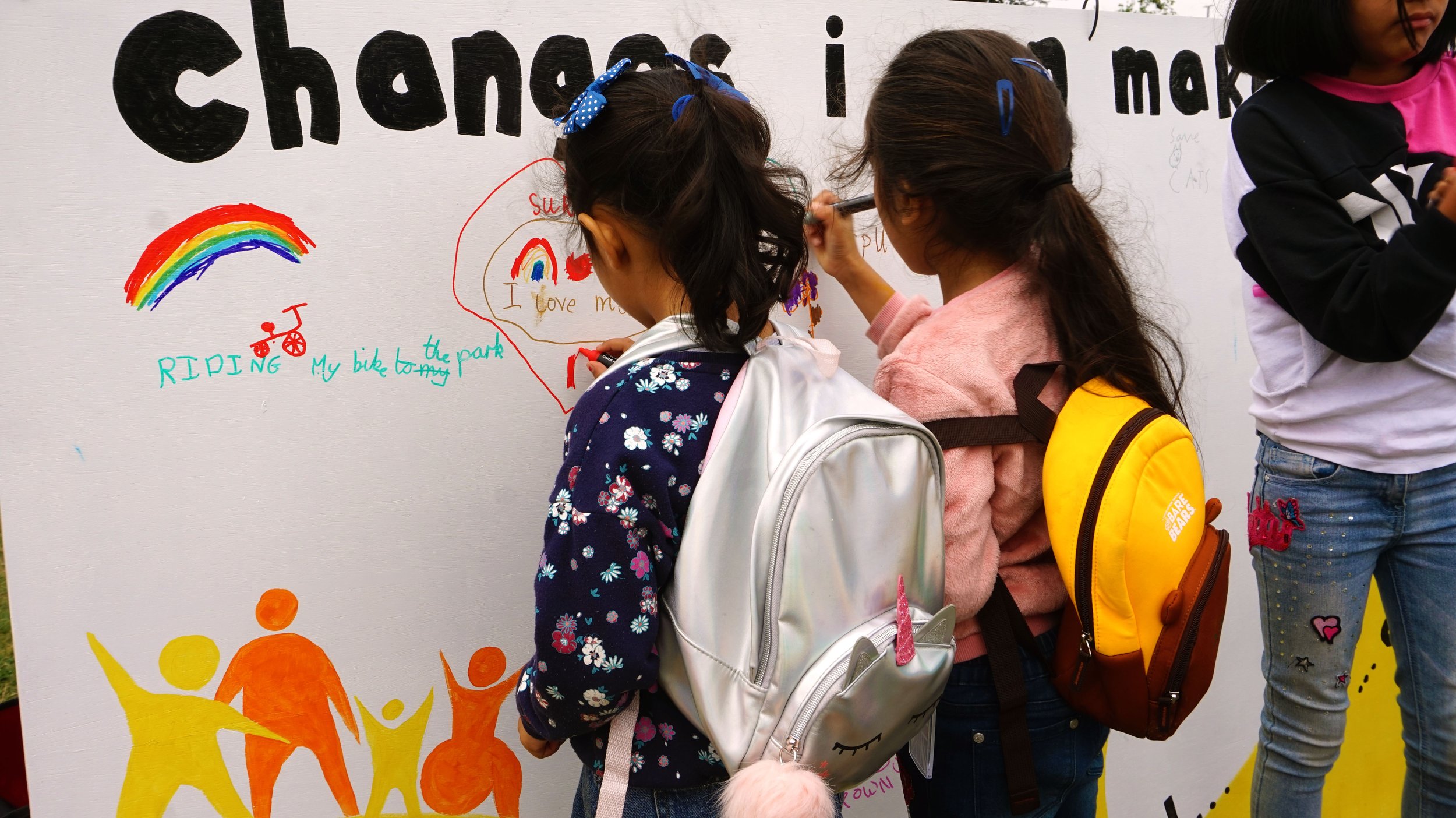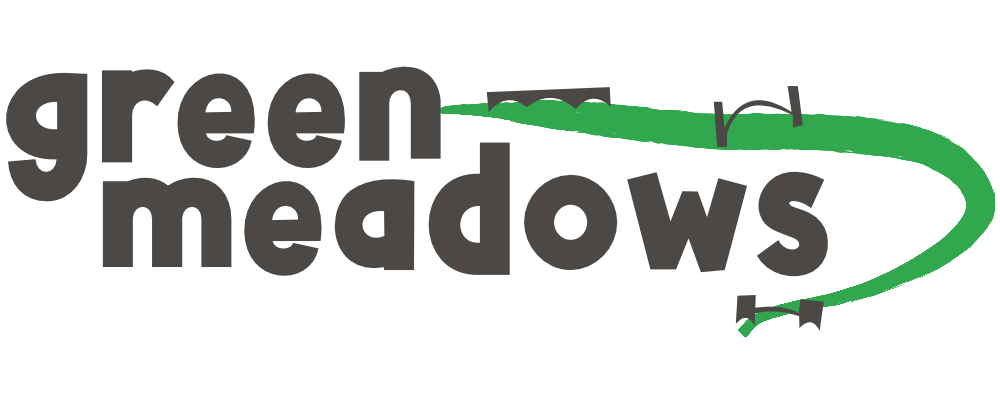
Green Learning
-

What is Green Learning?
Green Learning is part of Green Meadows aim to make lasting change, empowering and energising people to tackle climate change together. We recognise the importance of building momentum with young people and children. There is currently no requirement to teach Climate Change in the national curriculum and Green Learning helps to fill in these gaps.
-

What does it involve?
We run a set of Young Climate Champion Workshops in local schools in the Meadows, delivered on a weekly basis per half term. So far, they have been delivered across all different year groups of key stage two. They incorporate practical learning, a school trip and a practical cooking session so they can be adapted for different ages and abilities.
-

What have we provided?
The workshops:
Introduce children to basic concepts of climate change and support their further understanding through exciting hands-on workshops
Work with school councils to help form ‘Eco Councils’, with children from each year group meeting weekly to influence whole school policy
Assisted schools in new green initiatives, such as composting and litter picking!
Young Climate Champion workshops
We have three sets of engaging and education workshops. Find out about them below.
The Young Climate Champion Workshops have been devised as part of the Community Education focus of the Green Meadows project. Working with the three Meadows primary schools, Welbeck, Greenfields and Victoria, Green Meadows have developed a series of workshops with differing environmental focuses, working to fill the gaps made by the lack of Climate Science in National Curriculum - providing children and young people with fun, accessible and memorable activities related to our changing climate.
Each set of workshops are delivered one afternoon per week for a half term and have been delivered across the whole of Key Stage 2 so far.
Introduction to Climate Change Workshops
Workshops will help students understand what is meant by Climate Change and the greenhouse effect, teaching 5 key concepts of the greenhouse effect through interactive games and activities.
After utilising drama to understand the science behind the greenhouse effect in workshop one, workshop two and three turn to focus on the relationship between climate change and nature. Children learn to understand both food chains and eco-systems. To learn about ecosystems in action the children are assigned to be a living thing that forms a wider eco system and go on a scavenger hunt outside to find a picture of their living thing. They then play the ‘string game’ where each ecosystem is represented by children standing in a circle, throwing a ball of string amongst themselves to represent where their ecosystem connects. Children learn about the changing climate’s impact on ecosystems by the string being cut when one living thing is impacted, having a knock-on effect on the rest of the interconnected eco-system.
Utilising the knowledge they have gained so far in the workshops, we focus on taking action towards the end of the sessions, utilizing persuasive writing skills. Previously the children have written a letter to the Woodland Trust in application for free trees to be planted on the school grounds, using the knowledge they have of climate change to reason. The objectives behind this are that some of their work will be used in a real application to the Woodland Trust and if granted funding, those children will be involved in planting later in the school year. The aim here is to show children resources showcasing young activists and highlight the power they have if they wish to exercise their new knowledge of the climate in real material action. The final workshops are also marked by a graduation and celebration of the children’s work and commitment to being young climate champions going forward.
Life in Plastic workshops
The first workshop’s objective is to establish children’s prior knowledge of different materials, climate change and the environment. The environmental issue of plastic waste is introduced through looking at the history of plastic and understanding the properties of plastic that have contributed to its expansive use. The aim is to gradually increase children’s understanding of how we’ve reached this point, and the characteristics of materials which will be desirable to look for in alternative materials to plastic. The second workshop utilises Greenpeace’s short film “WasteMinster” to highlight the limitations of recycling, some of the ethical debates around offshore recycling, aiming to encourage children to reduce and re-use before recycling. The following workshop furthers this message by utilizing Tetra Pak cartons – a common item in household waste - recycling the material into purses by scoring, cutting, folding and decorating.
Children learn that plastic not only takes 500-1000 years to break down, but breaks down into smaller pieces of plastic called micro plastics, which cause their own set of problems for our planet. This learning encompasses learning about plastic in our clothes and micro-fibers. To respond to this, we begin ‘upcycling’ old and damaged clothes into something new, cutting them into strips and using the t-shirts to learn to weave. The sessions culminate in recycling the carboard frame used for t-shirt weaving into a graduation cap for our final sessions graduating as Young Climate Champions. The children graduate wearing their upcycled hats, their hand decorated medals and receive their certificates to mark their achievements.
Food waste workshops
From week one children are introduced to the basic concepts of Climate Change, supporting their further understanding of the implications of Food Waste with knowledge with knowledge of fossil fuels, energy and the Greenhouse Effect.
Following workshops look at ‘Food Waste’ as a definition that includes all the energy wasted throughout food’s journey to us - that concept is built on by examining food miles in more detail, drawing food mile maps to highlight the distance food travels to us in the UK, and then making Food Top Trumps that introduce other environmental impacts of food such as water footprints and the environmental impact of food’s packaging.
We go on to look at seasonal food, engaging the children with the benefits of ‘eating seasonally’, using a spot the difference of the different fresh produce in different seasons and the making of their own seasonal calendar. We also run an exciting field trip to the local Awkright Meadows Community Gardens, putting the children’s knowledge of seasonal food into practice, going on a scavenger hunt and eating some seasonal fruit!
We look at food waste and composting, making composting labels, and conclude the workshops with a cooking session using a commonly wasted food item by making and eating banana bread.
The final week is a celebration, medals are made in class from natural string and wooden discs, and the children receive certificates and prizes in celebration of their graduation as Young Climate Champions.
Are you a young person, parent or educator interested in taking part in Young Climate Champion workshops?
Get in touch with us by calling 0115 718 2028 or email learning@greenmeadows.uk
Our Knowledge Bank
The Knowledge Bank is a collection of free resources handpicked and created by Meadows residents, for the local community - it has a physical home at the Meadows Library and a digital home online. In short, it’s a 'one stop shop' for climate-related information, here to equip you and your family with resources to broaden your knowledge about climate change and make you more resilient against its effects.
The Knowledge Bank forms part of Green Learning’s mission to empower the community to gain a better understanding of climate change and what they can do to tackle it, creating open, free and accessible resources for all.
To check out some of Green Learning’s online resources and activities click here - with free worksheets to keep you busy at home, such as ‘How to make a Bee Hotel’ and ‘How to make a paper windmill’.
Alternatively, you can check out everything the Knowledge Bank has to offer by clicking the button below.
Get in touch if…
You are a young person or parent wanting to take climate action - we’d be really happy to set up a young climate group or help to support you get an Eco Council up and running
You are a teacher/educator or part of a sports/community club in the Meadows and interested in Young Climate Champion workshops
You have an idea or want to find out more/get involved with Climate education!
Get in touch with us by calling 0115 718 2028 or email learning@greenmeadows.uk










